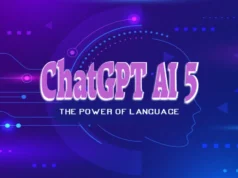The Power of GPT-based Chatbots: Revolutionizing Conversational AI

Conversational AI has come a long way in recent years, enabling businesses to provide more personalized and efficient customer interactions. One of the key advancements in this field is the emergence of GPT-based chatbots, which have revolutionized the way we engage with AI-powered conversational systems.
OpenAI’s GPT (Generative Pre-trained Transformer) models have paved the way for highly interactive and context-aware chatbots. These models utilize deep learning techniques to process vast amounts of textual data, allowing them to generate human-like responses in real-time conversations. By training on large-scale datasets, GPT-based chatbots gain a deep understanding of language patterns and context, resulting in more accurate and natural-sounding interactions.
One of the significant advantages of GPT-based chatbots is their ability to adapt to various domains and industries. Traditional chatbots often require extensive predefined rules and scripts, making them rigid and limited in scope. In contrast, GPT models can be fine-tuned and customized for specific industries, providing more accurate and industry-specific responses. Whether it’s customer support, virtual assistance, or even healthcare, GPT-powered chatbots can deliver tailored and high-quality conversational experiences.
GPT-based chatbots have also raised the bar in terms of conversational context. They excel at maintaining coherence and understanding user inputs in the context of ongoing conversations. In previous chatbot iterations, users often faced frustrations when the chatbot failed to remember the conversation history or offered irrelevant responses. With GPT models, chatbots can maintain longer-term memory, improving engagement and reducing user frustration. They can recall critical details, references, and even user preferences from earlier interactions, creating a fluid and personalized conversational experience.
The power of GPT-based chatbots extends beyond text-based interactions. With advancements in natural language processing (NLP) and speech recognition technologies, these chatbots become capable of understanding and responding to spoken language, either through voice assistants or call center interactions. This opens up new frontiers for customer service, voice-activated virtual assistants, and more, delivering seamless and human-like conversational experiences across channels.
As with any AI technology, ethical considerations and responsible deployment of GPT-based chatbots are crucial. Limitations, biases, and potential for misuse must be regularly addressed and mitigated. Companies need to ensure transparency and accountability in AI algorithms to minimize risks associated with automated conversations. Building in safeguards and ongoing monitoring are essential steps in delivering reliable and trustworthy conversational AI experiences.
In conclusion, GPT-based chatbots represent a significant leap forward in the field of conversational AI. Their capacity for generating realistic and contextually-aware responses, customization for specific domains, and integration with speech recognition technologies make them catalysts for user engagement and improved customer experiences. With ongoing advancements and responsible deployment, GPT-based chatbots are set to revolutionize the way we interact with AI systems, paving the way for a more conversational and personalized future.









